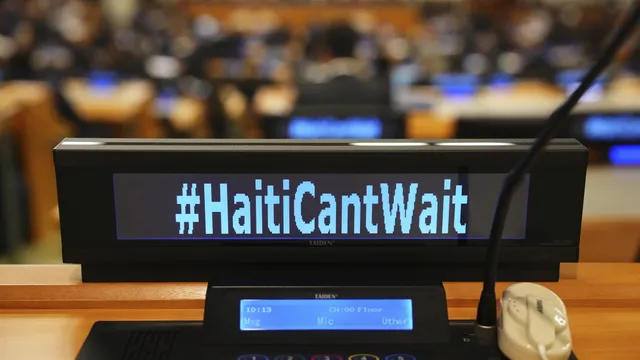
Dominican Republic warns of drastic measures amid Haiti gang crisis
2024-09-25 17:25- The Dominican Republic's president warned of drastic measures if a U.N.-backed mission in Haiti fails to curb gang violence.
- Haiti has not held elections since 2016, and the current instability has led to significant humanitarian issues, including homelessness and displacement.
- The Dominican Republic has been heavily impacted by the crisis, with a high number of deportations and a call for international support to address the situation.
Express your sentiment!
Insights
The president of the Dominican Republic has expressed serious concerns regarding the escalating gang violence in Haiti, which has led to a humanitarian crisis affecting both nations. With gangs controlling 80% of Port-au-Prince, the Dominican Republic is feeling the pressure, as instability in Haiti has resulted in significant security challenges. The Dominican government has been proactive, deporting over 170,000 individuals believed to be Haitians, although human rights activists have criticized these actions as violations of rights. The Dominican president, Abinader, emphasized the need for a U.N.-backed mission in Haiti to restore order and facilitate free elections, which have not occurred since 2016. He highlighted the importance of establishing a secure environment for the upcoming elections, scheduled for February 2026, as the current conditions remain inadequate. The Dominican Republic has been shouldering a disproportionate burden in addressing the crisis, with a significant number of Haitians relying on its healthcare and education systems. International support is crucial, as the U.N. Secretary-General has noted the dire humanitarian situation in Haiti and the inadequacy of funding for the mission. The U.S. has pledged additional financial assistance to help alleviate the crisis, while sanctions have been imposed on individuals accused of supporting gang violence. The situation remains precarious, with ongoing human rights abuses reported by gangs. In conclusion, the Dominican Republic is prepared to take drastic measures to protect its sovereignty and security if the international community fails to stabilize Haiti. The president's warnings reflect the urgency of the situation and the need for collaborative efforts to address the root causes of the crisis.
Contexts
Haiti is currently experiencing a severe crisis marked by rampant gang violence, political instability, and humanitarian challenges. Gangs control much of Port-au-Prince, leading to widespread violence, including kidnappings and assaults. A recent U.N. report indicated that over 1,300 people were killed or injured between April and June, with the National Police struggling to maintain order due to a lack of resources and personnel. This situation has resulted in over 578,000 displaced individuals, exacerbating the humanitarian crisis. In response to the escalating violence, international efforts have been initiated, including the deployment of military police from Guatemala and additional police officers from Kenya. These measures aim to support the U.N.-backed mission, which has faced criticism for being underfunded and understaffed. The U.S. Department of State has issued a 'Level 4: Do Not Travel' advisory for Haiti, reflecting the dangerous conditions for citizens. Amidst this turmoil, Hôpital Sacré Coeur in northern Haiti is facing a severe insulin shortage, leading to children arriving in diabetic comas. Many families cannot afford insulin, prompting the hospital to search for supplies, while Direct Relief has begun delivering insulin shipments to address this urgent need. At the 79th U.N. General Assembly, the U.S. hosted a meeting to address security issues in Haiti, announcing $160 million in additional aid. Haitian leaders discussed the dire humanitarian situation, with many living in camps and facing food insecurity, emphasizing the need for increased international support to restore peace and security in the country.